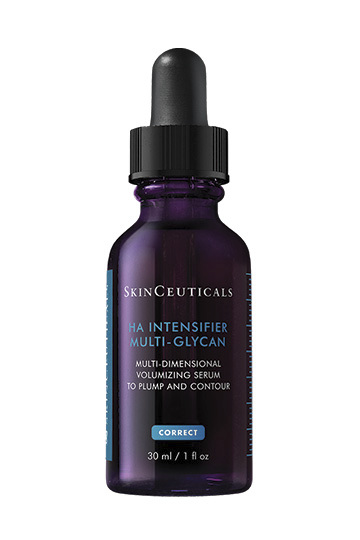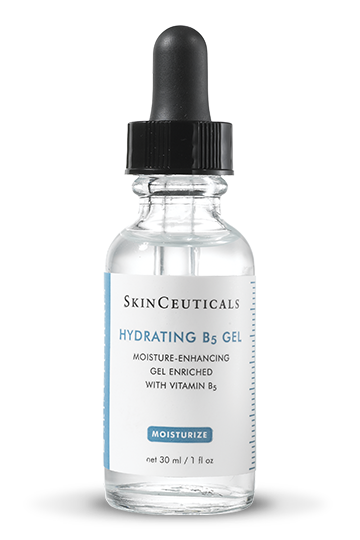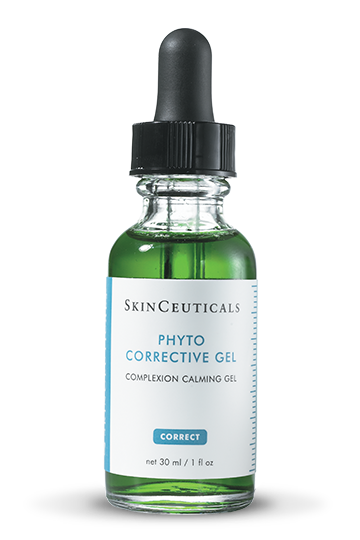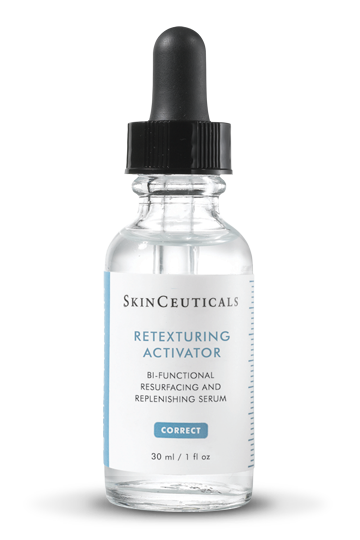Hyaluronic acid, while a powerful hydrator for skin,
is a very large molecule that even when delivered topically in fragmented form, is still too large to penetrate skin for a
significant transformation of volume. When injected, these fillers both fill space and absorb water to temporarily restore
facial volume and smooth out wrinkles. Popular areas of the face for hyaluronic acid injections, also known as dermal fillers,
include nasolabial folds (parentheses around the mouth), marionette lines (lines from the corners of the mouth down to the chin),
the jawline, lips, cheeks, or under the eyes. While the results of hyaluronic acid injections are immediate and can last
between 3 to 12 months, hyaluronic acid is naturally absorbed by the body. As a result, repeat injections are required to
maintain results. To find a certified professional for hyaluronic acid injections, visit the SkinCeuticals skincare professional locator.













